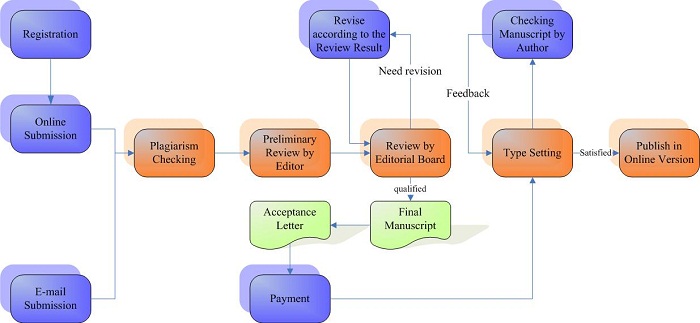World Journal of Social Science Research (WJSSR) is the first journal of Scholink in the field of social science. The mission of WJSSR is to provide a high-level platform for experts and scholars all over the world to share their latest ideas of social science and foster the prosperity of the discipline. We would welcome scholars and researchers engaging in the related field to submit your manuscripts to WJSSR. Both of online submission and E-mail submission (wjssr@scholink.org) are acceptable. ----------------------------------------------------------------- The journal focuses on the following fields:
The journal is indexed with:
| Open access: World Journal of Social Science Research is available online to the reader "without financial, legal, or technical barriers other than those inseparable from gaining access to the internet itself." Peer review: World Journal of Social Science Research takes peer review policy. Peer review is the evaluation of work by one or more people of similar competence to the producers of the work (peers).
|
Journal Publishing Flowchart

Announcements
Call for Papers for Vol. 12, No. 2, 2025 |
|
| We are calling for submission of papers for Vol. 12, No. 2, 2025. Please submit your manuscripts online. You may also e-mail submissions to wjssr@scholink.org | |
| Posted: 2025-09-11 | |
Call for Papers for Vol. 12, No. 1, 2025 |
|
| We are calling for submission of papers for Vol. 12, No. 1, 2025. Please submit your manuscripts online. You may also e-mail submissions to wjssr@scholink.org | |
| Posted: 2024-12-05 | |
Call for Papers for Vol. 11, No. 4, December, 2024 |
|
| We are calling for submission of papers for Vol. 11, No. 4, 2024. Please submit your manuscripts online. You may also e-mail submissions to wjssr@scholink.org | |
| Posted: 2024-09-05 | |
| More Announcements... |
Vol 12, No 1 (2025)
Table of Contents
Articles
|
Eun-Young Park
|
p1
|
|
Ziheng Zhou
|
p14
|
|
Gilbert Gagné, Heather McKeen-Edwards
|
p34
|
|
Ayoola Abuloye, Enobong Ogundari
|
p48
|
|
Dr Alejandro Klein
|
p60
|
|
Xinyuan Fang
|
p68
|
|
Pham Thi Nhan, Lai Xuan Thuy
|
p72
|
|
Xi J. Huang, Ze Y. Yang
|
p91
|
|
Yun Jiang, Xiaoping Zhong, Junxia Hu
|
p122
|


